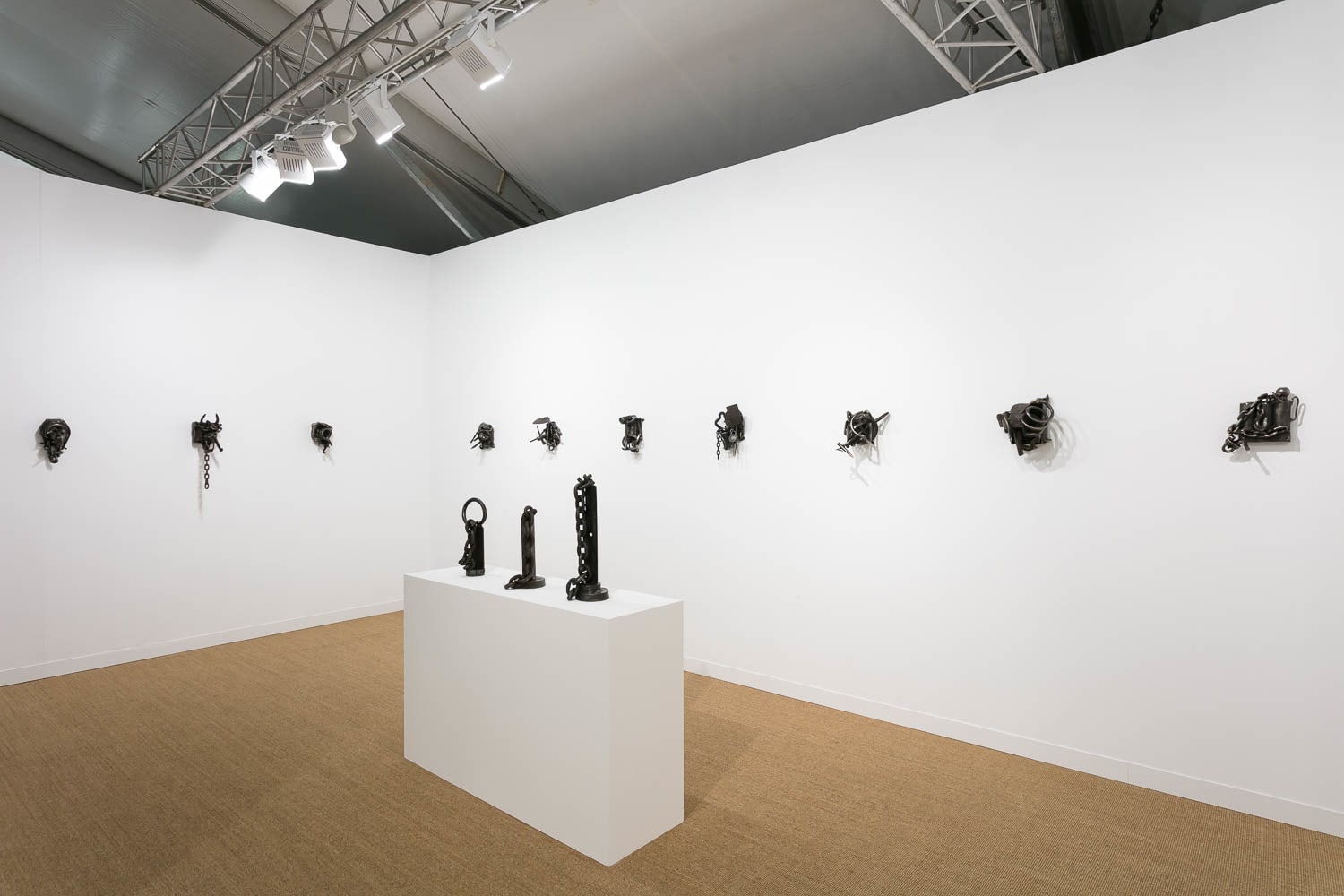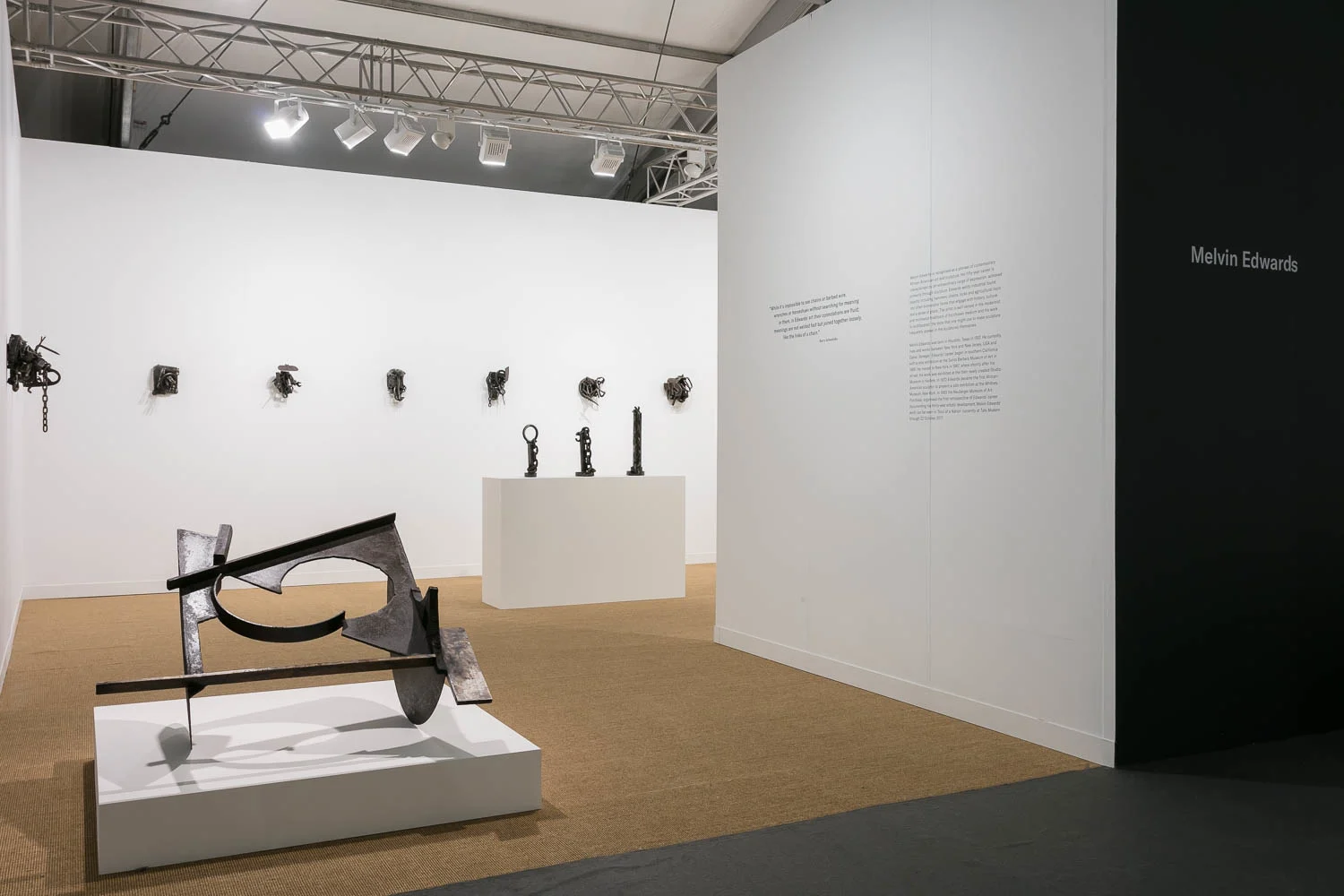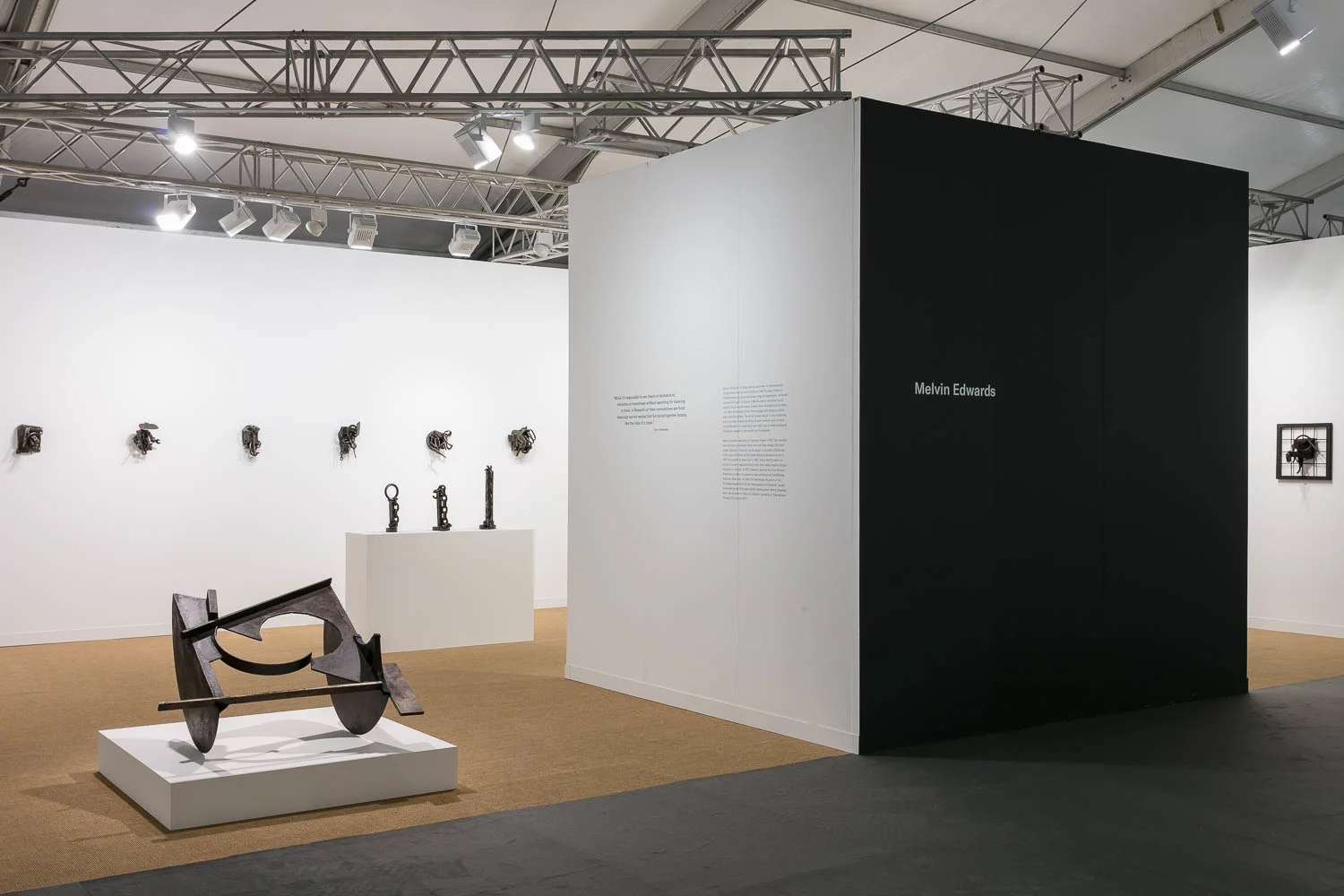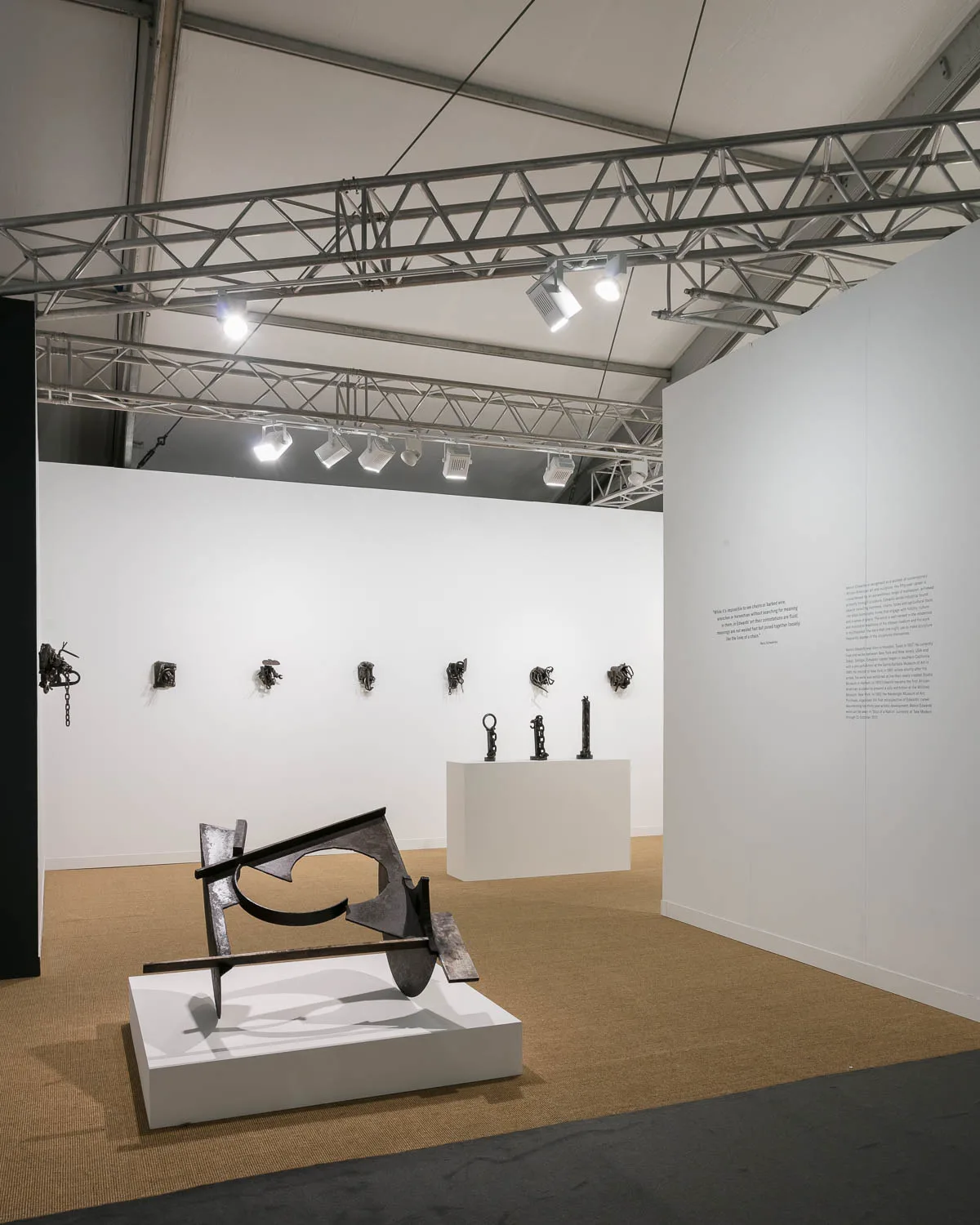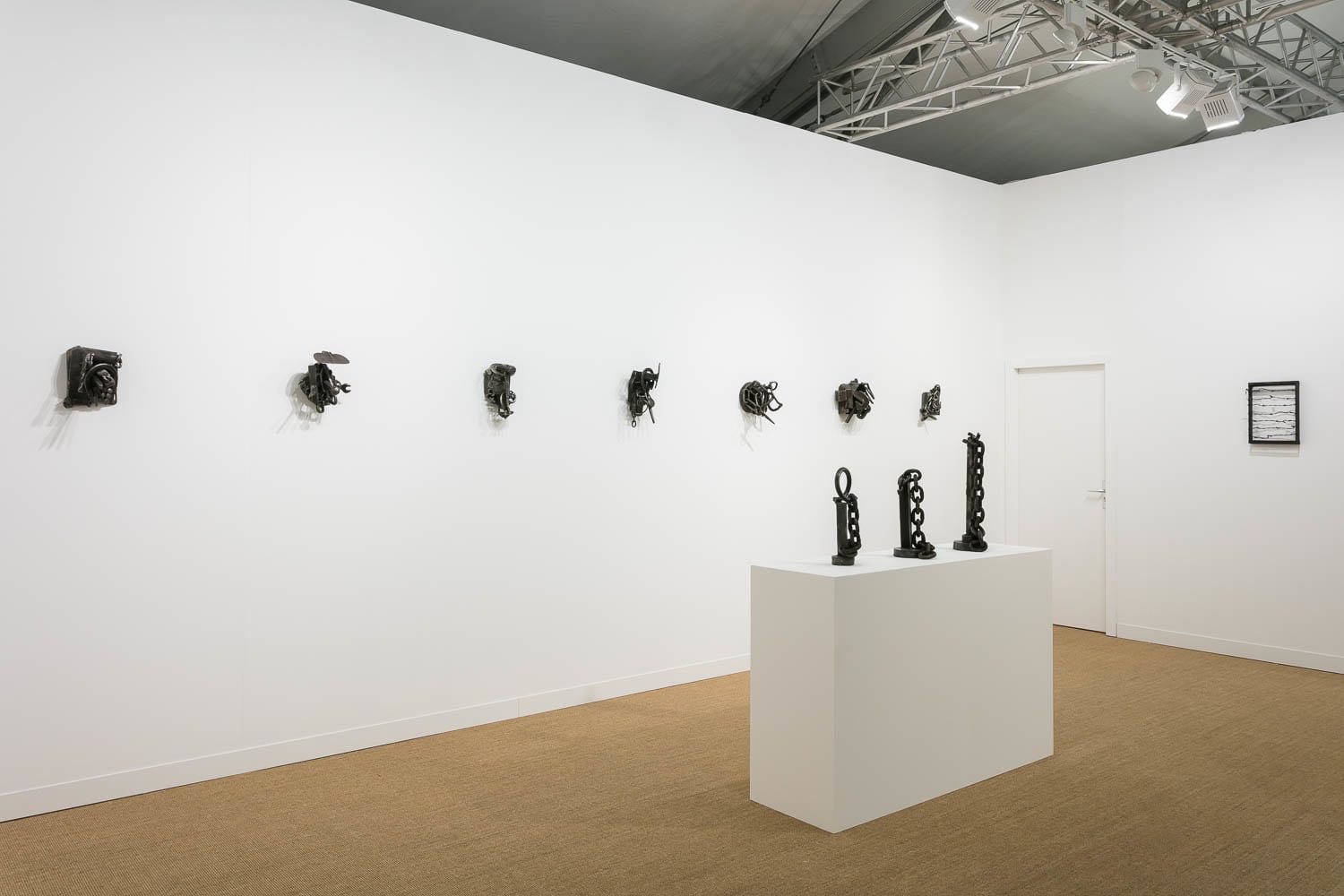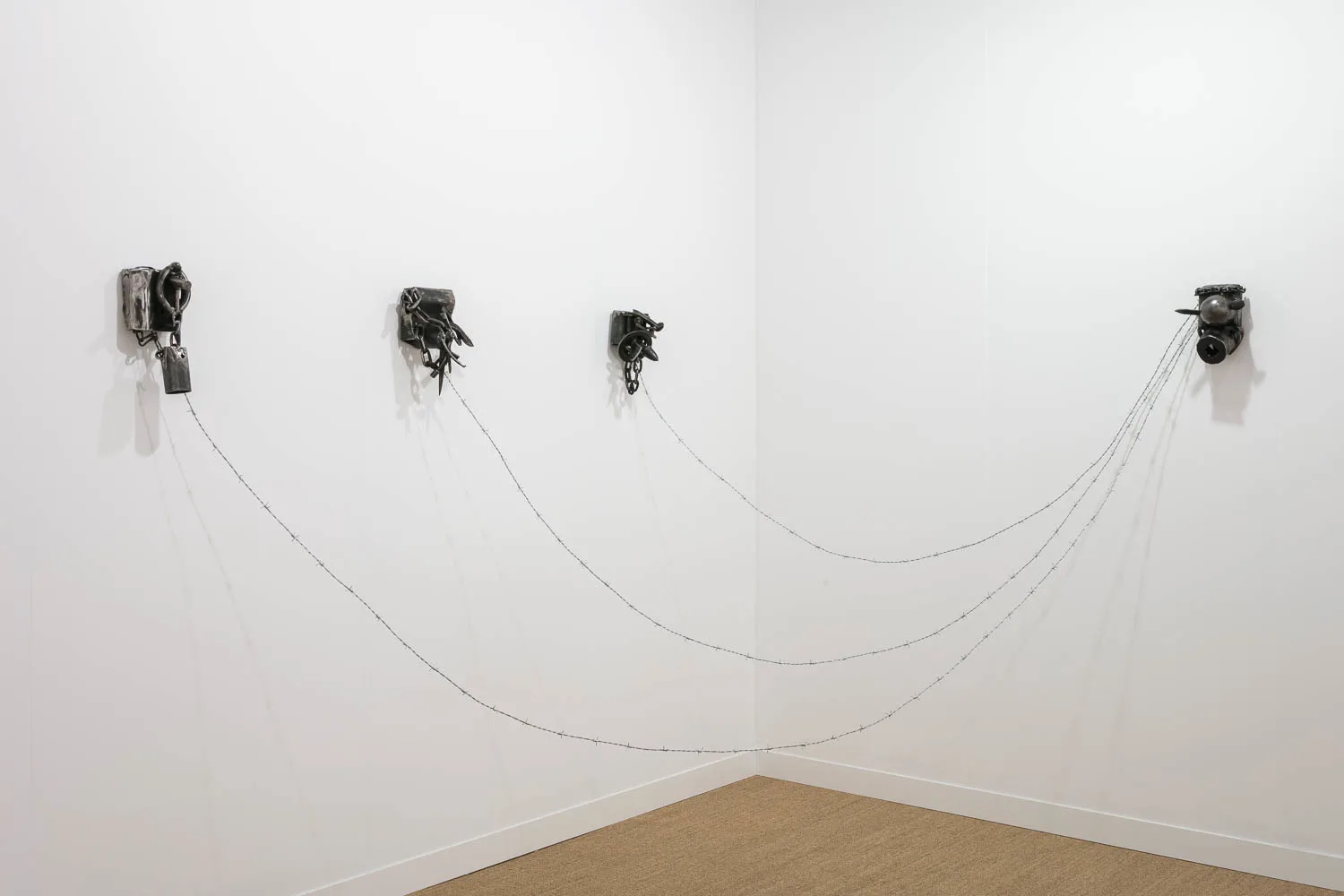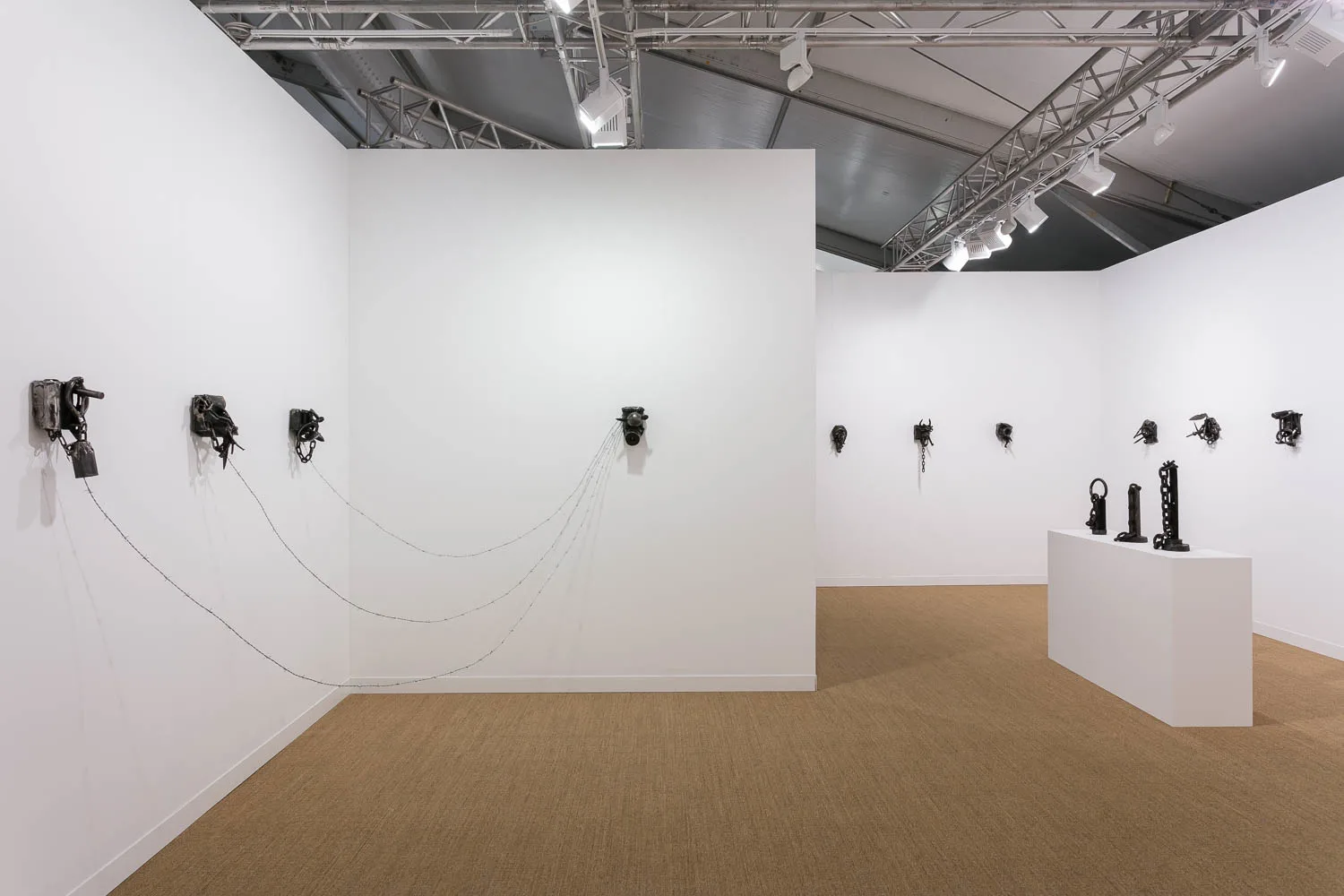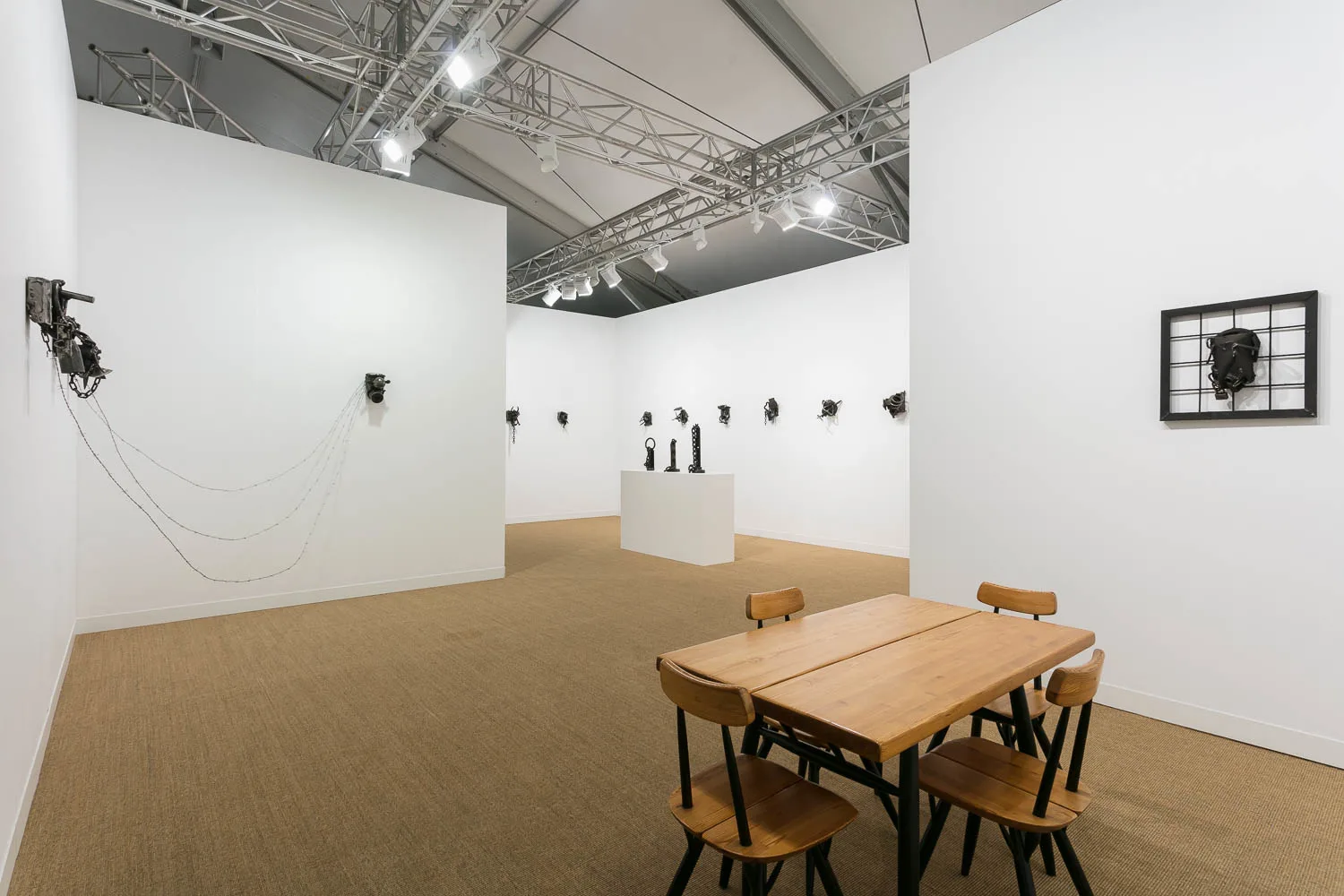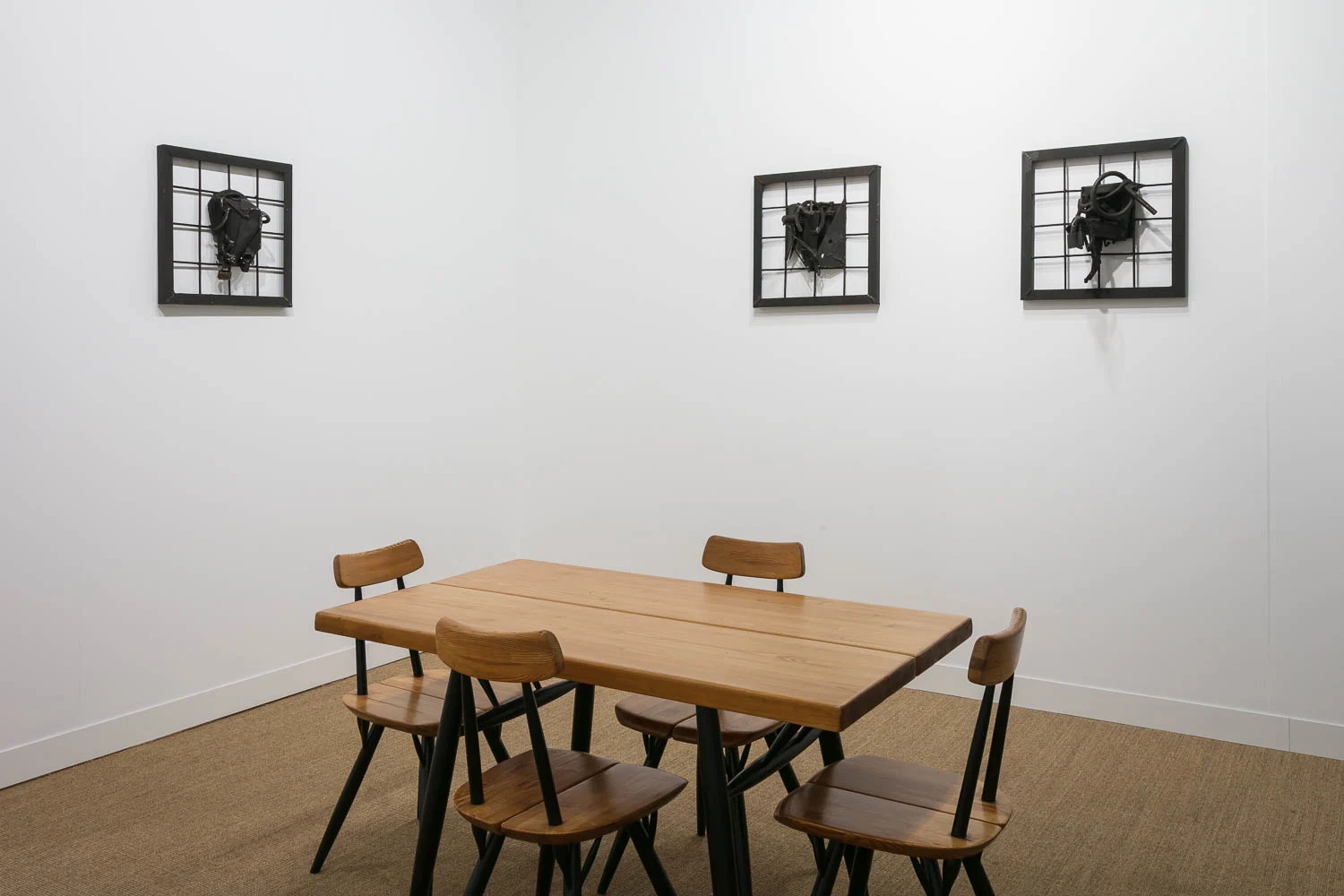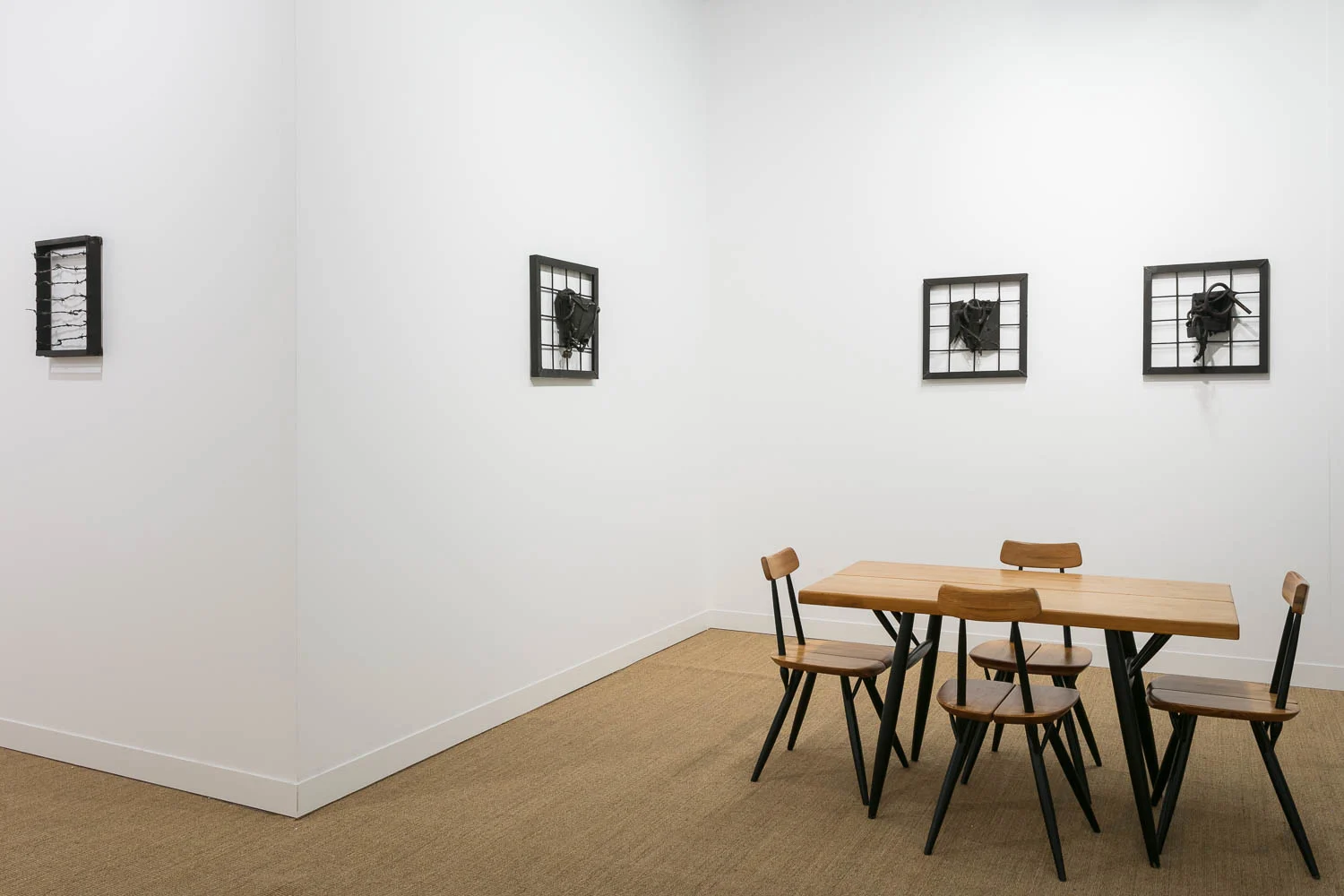
Frieze London
Overview
Stephen Friedman Gallery presents a solo exhibition by American sculptor Melvin Edwards. The presentation includes 'Lynch Fragments', a rare work entitled 'Pamberi' from his Rocker series, and other important sculptures.
Stephen Friedman Gallery presents a solo exhibition by American sculptor Melvin Edwards. The presentation includes 'Lynch Fragments', a rare work entitled 'Pamberi' from his Rocker series, and other important sculptures.
Melvin Edwards is recognised as a pioneer of contemporary African-American art and sculpture. His fifty-year career is characterised by an extraordinary range of expression, achieved primarily through sculpture. Edwards welds industrial found objects including hammers, chains, locks and agricultural tools into often biomorphic forms that engage with history, culture and a sense of place. The artist is well-versed in the modernist and minimalist traditions of his chosen medium and his work is multifaceted.
In 2016 Oklahoma Contemporary presented a major exhibition of Edwards' work. In the months prior to the opening he found a studio in Oklahoma City and lived and worked in the city, creating sculptures using scrap metal that he sourced locally. Edwards often works in this way and his practice is content-laden and imbued with a sense of place. Oklahoma and nearby Texas were significant in ‘the Great Migration' from 1910-1970 which saw the movement, settlement and shifting status of many black American families, including the artist's own. Edwards has lived in both Texas and Oklahoma and so the narratives in these new sculptures are both personal and communal.
Many of the works presented at Frieze London were made in 2017 and are forged from the scrap metal that Edwards procured in Oklahoma State and shipped to his studio in New York State. By making work related to Oklahoma City, which is traditionally characterised by agriculture and production, Edwards engages with issues that are politically charged in the current American climate.
Edwards is perhaps best known for his series of ‘Lynch Fragments', small-scale abstract relief sculptures that possess an intensity and passion that belie their size. They are mounted on the wall in a subtle nod to their moniker and in many ways embody the spirit of Edwards' practice.
Edwards created the first Lynch Fragment in 1963 amid the urgent concerns of the Civil Rights Movement. In each, metal objects such as tools, knives, hooks, barbed wire and machine parts are forged together in an abstract configuration that is at once tantalisingly familiar and unsettling. The sculptures are clenched compressions of energy and layered meaning that have a strong physical immediacy. In this way Edwards has likened his work to that of a jazz musician: expressing an emotive notion or thought without being literal.
‘ARK-LA-TEX OK' is an exceptional work made from steel sourced in Oklahoma. It consists of four ‘Lynch Fragments' connected by barbed wire and installed across a corner. The material contrast between the barbed wire and the welded steel elements in the work creates what the artist describes as a distinction between "the mass and the linear". Edwards has often referred his use of barbed wire as a tool for "drawing in space".
Other works in the presentation are derived from material that Edwards came across in various cities he visited while travelling the world. For example, welded steel sculptures that are mounted on a geometric grid were formed from materials found in Dakar, Senegal. The striking composition was inspired by local metalworkers working on drain gutters, and resonates with Dakar's vernacular architecture of wrought iron window bars and doors.
‘Pamberi' was made during Edwards' travels in Zimbabwe between 1986 - 1989, and forms part of the artist's ‘Rocker' series. These iconic kinetic works are inspired by the memory of his grandmother's rocking chair, and subvert the industrial identity of the material to create an emotionally charged object. The title of this work translates roughly to ‘forward' or to the colloquial expression ‘keep on keeping on'.
Art critic Michael Brenson says of Edwards' work: "It's a combination of a very emphatic directness, and ... abstraction, which is almost the opposite, a resistance to an either/or, or us/them, or this/that, where the work has a kind of freedom to it, and it can go anywhere, and it seems it's really the combination of the two". Edwards has a unique ability to communicate layered and complex ideas about politically loaded subjects in powerful and fresh ways - challenging and expanding what it means to make sculpture. This group of works demonstrates the continued vitality of his practice, in narrating and contesting the changing American cultural and political landscape.
Melvin Edwards was born Houston, Texas, USA in 1937. He currently lives and works between New York and New Jersey, USA, and Dakar, Senegal.
Edward's art career began in southern California with a solo exhibition at the Santa Barbara Museum of Art in 1965. He moved to New York in 1967, where shortly after his arrival, his work was exhibited at the then newly created Studio Museum. In 1970 Edwards became the first African-American sculptor to have works presented in a solo exhibition at the Whitney Museum. In 1993, the Neuberger Museum of Art in Purchase, NY, organised the first retrospective in Edwards' career documenting his thirty-year artistic development.
The preview is Wednesday 4 October.
Installation Views
